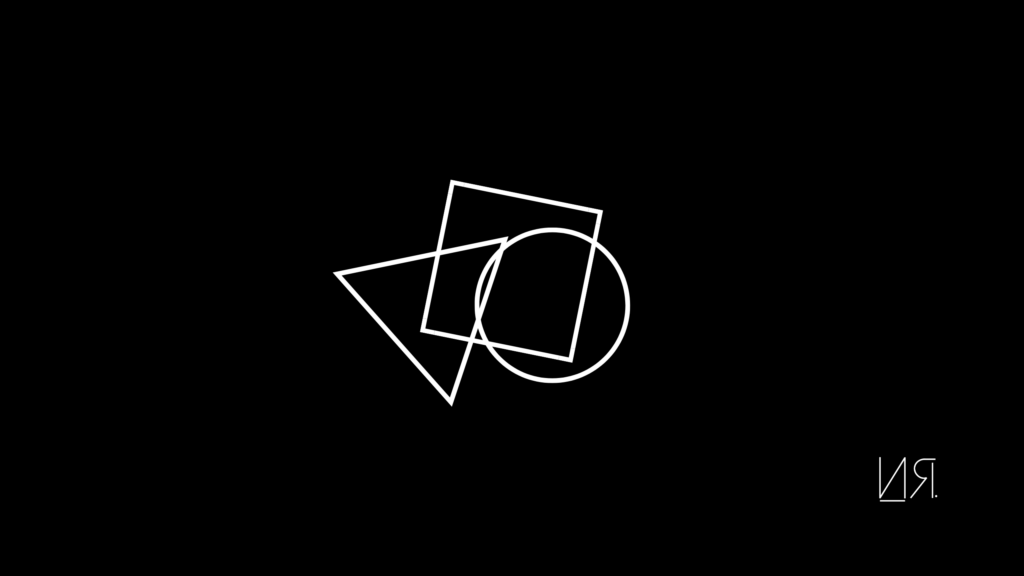“Just…do it for your friends.”
That’s what my music professor at Stanford said on the last day of one of my digital music classes.
“Just do it for your friends. Make your music for them”
I thought he was underhandedly telling us – students – that our music was not good enough for anyone beyond our small friend circles.
I watched him from the back of the class with skepticism.
But the more he spoke, the more I realized he was being sincere.
I later understood the wisdom of what he was saying.
He was telling us to keep forging on with our interest but to hold on to the humility of just doing it for the love of the process and maybe the enjoyment of a few friends.
That reduced the pressure of creation.
This humility is the path to being remarkable.
Do it for the love
Don’t do it for the likes!
Most people are afraid to be themselves. As if any one of us could be successful at being anything else.
The schools have normalized most of us.
Stand up! Sit down!
Recite your multiplication table!
Does this sound familiar?
Oh no!
Well, maybe I’m just projecting. I grew up in a military regime. To say the least, things were quite regimented.
But you don’t have to grow up under the thumb of military rule to be normalized.
Even the freest of the free are trapped in their so-called “liberty” doctrine.
Sold fantasies by advertising companies who say things like:
“follow your heart”
“buy this to be happy”
The masses were created by manufacturing companies in collaboration with their advertising buddies.
They submerged people in media that reinforced “sameness”.
These mad men told people:
Buy a fridge.
Get that picket fence.
Don’t forget to get the sprinklers for the evergreen grass.
Over the years, we got normalized. We don’t like to stick out like a sore thumb.
No one wants to hang out with the loner in the corner there. On the other side of the room is the ‘uppity’ loud mouth.
Don’t go there. Stay in the middle. Where you wouldn’t be noticed.
The safe zone!!!
A lot of us want to make an impact. We want to contribute our gift and expertise to our families, communities, or the world at large.
There’s no impact to be made in the safe zone. Everyone there is too busy maintaining the status quo.
I hear the hisses of the masses in unison:
“we do stuff but we don’t have to share it”
“That’s right” the woman from the corner yells “mr. writer, out here, on his soapbox this early Saturday morning.”
“We do it all for ourselves. In our heads. Please, we only share when we are called to share”
Ahh, my bad.
E ma binu o.
I’m just saying that the safe zone you are all hissing in is unsafe.
A lot of us are in the middle, surrounded by people, yet we all feel isolated in this digital era.
The industrialists that created the “mass class” have now taken most of your capital (*cough* *cough* I mean, their capital) and they are now knee deep in information, automation, and bioengineering technologies.
We are in the dawn of the conceptual era.
There is no need to be with the masses.
On April 30, 1993, something called the World Wide Web launched into the public domain.
The internet, over the last 30 years has democratized the distribution of information. The blockchain is here to authenticate it.
The people you really want to be connected with are not in that safe zone with you. They are on the fringes.
The happiness that was on sale 60 years ago, is no longer available. Truth is that it was never on sale. Because happiness doesn’t come from outside. It’s an inside job.
That’s why you create for yourself and share to locate your people.
Create for an audience of one, knowing that you can’t pre-determine the outcome.
Share your work and create things that your community will make a remark about.
Be remarkable.
4 Ways To Practice the Art of Imperfection
Letting go of the fear of sharing your work or ideas requires a lot of unlearning. You really have to know who’s judgment you are concerned about.
If you are still wondering, it is probably your family, close friends, and the acquaintances you met in the different institutions you funneled yourself in.
Most importantly, you are afraid of losing your identity.
Detach from the external validation.
This is not a one-time thing. It requires practice. With it, you’ll overcome the final resistance and ship your important work.
You’ll get very valuable feedback and build confidence. Most importantly, you will find people with mutual interest and y’all can be remarkable together.
Here are 4 ways to practice the art of imperfection.
1. Go on and off beat
Mistakes make you more human.
When I started making beats, I would google “how to make a beat like J Dilla”.
On producer forums I’d find witty response like: “To make a beat like J Dilla, your two ears have to be attached to J Dilla’s head”
“Oh. thanks for the help” I thought.
I later understood the wisdom in those statements years after.
Only J Dilla can make a beat like J Dilla.
He has his signature patterns. And what attracts a lot of us beat makers to his production style is how he can make a machine sound human.
Using intentional mistakes to humanize the music.
Machines and algorithms are efficient, they do not make mistakes. Humans are different.
We’re built on making mistakes. Most inventions have come out of a cocktail of play and mistakes.
Society has built us to shy away from mistakes. This need does not serve us well when we think about long term goals.
What you need to do is unlearn this insistent need for validation and overhaul your reward system.
There are two ways to overcome:
- Unplug from traditional reward systems
- Create small rewards to keep motivated along the way.
Overcome your fear of judgment. Most people are thinking about themselves, not you and your work.
Know what “losing” tastes like. It’s not a great feeling but most people only play it safe. They really don’t know what it takes. They will remain amateurs.
Not you.
You will get in the arena.
You will experience wins and losses.
Regardless of the outcome, you will show up for yourself.
Make mistakes. That’s part of the human experience.
Your creativity is not a spectator sport.
2. Detach from the outcome
Your happiness depends on how wild your imagination is
Happiness is something we all strive for.
It’s the reason why some people have so much but are unhappy, while some have little and are happy.
When I wrote my first book, Press Play, I asked a pressing question: “Would you rather be poor in a rich nation or rich in a poor nation?”
This question brought out interesting responses.
It is important because it is all relative. Happiness is linked to how your expectations match reality.
We tend to be unhappy when reality doesn’t match what we expected.
This is called the expectation gap.
There are three types of expectation gaps: imaginary, interpersonal, and intertemporal.
Imaginary is when the infinite scale of our imagination does not meet the bounds of reality.
Interpersonal gap is when you compare yourself to others and you feel other people’s reality is better than yours.
Intertemporal gap is when your past reality is better than the present.
You are happy when you are pleasantly surprised by an event. You didn’t have any expectations going in.
The only way you can become more realistic about your expectations is to keep practicing. Do it until it becomes intuitive to you.
You are not guaranteed the fruit of your labor. You are only guaranteed the labor itself.
Fall in love with your process.
3. Learn to let go
Resistance is relentless.
Just when you are at the finish line. That’s when resistance shows up for the final showdown.
It brings out all its guns.
Its allies are everywhere. Everything you touch will freeze you.
You will be scared to fail but deep down what you are really afraid of is your success.
The world will tell you what it has always told you:
“be quiet”
“be normal”
“no one wants another uppity self-promoter”
The bourgeois will wage silent class wars on your mind. They will collectively look down on you.
How dare you find yourself?
How dare you stand out?
Agent Smith is all around you. It will show up in all forms.
Will you make it?
Will you put it out there?
Breathe. Before you lose it.
Remember that it is a labor of love. You get to enjoy the labor. The fruits of the labor are out of your control and can’t be predicted.
What you create and share is not for everyone.
It’s for the people that value your interest and unique experience with it.
They are your true tribe.
Ignore the noise or the silence.
It is what it is.
Ship!
4. Be generous
Find your golden ratio.
Fly between the extremes like Icarus was supposed to.
According to Seth Godin, there are two marketing principles of the modern creator economy: generosity and making art.
Making art and generosity is what modern marketing in this era is all about.
Create and share.
Some call it “building in public.”
As you start or continue down this path, you are told: “oh dear, don’t get carried away. Don’t be like Icarus.”
Icarus’ story about flying too close to the sun is an ancient Greek mythology about a man that was given waxed wings.
He reached too high, flew too close to the sun, and crashed to the depths.
The unique element of the story that is actually ignored is that the actual instruction given to Icarus was to fly between the extremes. Not too high and close to the sun but also not too low that the water and mist weighs him down.
He was told to find his golden ratio.
A good place that does not cause burnout but also to push beyond an apathetic pace of complacency.
We only hear the first part of the story because…….you guessed it: we have been subdued to be unremarkable.
What you need to do is project your work into the world in your own way and find your true tribe.
Kevin Kelly, the founding editor of WIRED, wrote a monumental essay in 2008 that popularized the concept of 1000 true fans.
He stated that the modern creator, due to the democratization of distribution through the internet, only needs 1000 people to build a sustainable life.
In this era, you have to actively find these people.
They don’t necessarily care whether what you create is “right” or done in the most efficient way.
They care about whether the way it was done is interesting.
They care about whether it was touched by you: a human.
Final Thoughts
Real connection is what people seek.
The only way to get there is through making art and generosity. When I talk about art, I’m not just talking about writing or painting or making films. I’m talking about doing things in a new and interesting way.
- Art: no one wants basic. They want to know a human touched it.
- Generosity: no one wants to be interacting with a selfish person.
You can be an artist with the unique way you create excel sheets at work or for your community.
Practice the art of imperfection by going on and off beat, detaching from the outcome, and letting go.
When you create, be generous by sharing to build your community and find the right.
How do you get to the right people?
Do what most people are scared to do.
Be remarkable at being yourself.



